#learningdisabilities
Explore tagged Tumblr posts
Text
⚠️How to Spot Learning Disabilities in Kids in Gurgaon Each child learns as per their individual pace, but at times some challenges hinder the learning process. If you are a parent living in Gurgaon, it is helpful to know about Learning Disabilities in Children in Gurgaon so that you can look for early indicators and provide proper support to your child.
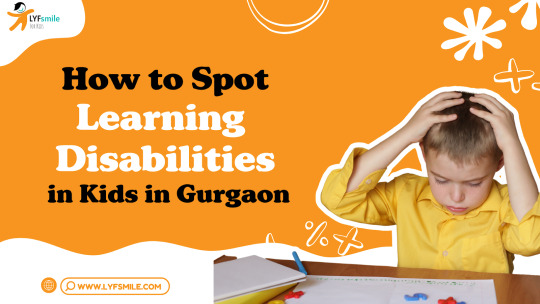
🔍 Initial Indicators of Learning Disabilities
Learning disabilities influence the way children process, comprehend, and react to information. Some typical warning signs are:
👉 Reading & Writing Difficulty
Difficulty in identifying letters and words.
Trouble understanding what they read.
Poor handwriting and difficulty forming letters correctly.
👉 Trouble with Numbers & Math
Difficulty understanding basic math concepts.
Struggles with remembering numbers and sequences.
Trouble solving simple problems.
👉 Problems with Focus & Attention
Easily distracted and struggles to complete tasks.
Has difficulty following instructions.
Frequently forgets what was just said.
👉 Speech & Language Delays
Limited vocabulary for their age.
Trouble expressing thoughts clearly.
Difficulty understanding and following conversations.
📒 What Can Parents in Gurgaon Do?
Talk to Teachers – Teachers have insights into your child's learning patterns.
Get a Professional Evaluation –Teachers can share information about your child's learning habits.
Obtain a Professional Assessment – A special educator or child psychologist can identify learning disabilities.
Focus on Strengths – Identify your child's strengths and interests to boost confidence.
👤 Where to Get Help in Gurgaon?
Special Education Centers – Schools with specially planned programs for kids with learning challenges.
Speech & Occupational Therapists – A child psychologist or a special educator can diagnose learning disabilities.
Tutoring & Learning Programs – Specialized learning strategies tailored for children with disabilities.
🚀 Importance of Early Intervention
The earlier a learning disability is found, the better the chances of your child's success. Learning strategies, therapy, and patience can really make a big difference in your child's schooling.
💡 FAQs
1. How do I know whether my child has a learning disability?If your child consistently struggles with reading, writing, math, or following instructions, consult an expert for an evaluation.
2. Can learning disabilities be treated?Learning disabilities cannot be "cured," but with proper support, children can learn to cope effectively.
3. Where can I get expert assistance in Gurgaon?There are numerous special education schools, therapists, and child psychologists in Gurgaon who deal specifically with learning disabilities.💌 Take the First Step Today! If you feel your child has Learning Disabilities in Children in Gurgaon, do not hesitate. Early intervention and proper guidance can support your child to excel. Seek a professional, get the proper advice, and equip your child for a better tomorrow!
Lyfsmile is here to help.Whatsapp/Call +91 98047 91047Gmail: [email protected] to get started. 📍 Visit Us: Gurgaon!
#ChildDevelopment#LearningDisabilities#ParentingTips#EarlyIntervention#ChildCare#SpecialEducation#GurgaonParents#SpeechTherapy#KidsLearning#RedFlagsInKids
0 notes
Text
Unlocking Potential: Supporting Children with Learning Disabilities
Meet Alex, a creative child who loves building Legos but struggles with reading. Like many kids with learning disabilities, Alex feels frustrated in school—but with the right support, they can thrive. 🌟
Learning disabilities, such as dyslexia, dyscalculia, dysgraphia, and ADHD, are not about intelligence; they’re about how the brain processes information. Early recognition and tailored strategies like Individualized Education Plans (IEPs), multi-sensory learning, and social skills training can make all the difference. 💡
Let’s empower children like Alex to unlock their potential and shine!
0 notes
Text
youtube
#Dyslexia#ChildDyslexia#ParentingTips#SignsOfDyslexia#EarlyIntervention#LearningDisabilities#SpecialEducation#ParentingAdvice#ChildDevelopment#DyslexiaAwareness#EducationalSupport#ParentingInsights#DyslexiaHelp#ReadingStruggles#EarlyDiagnosis#SpecialNeeds#SupportYourChild#Youtube
0 notes
Text
Learning Disabilities in Children: Understanding and Solutions

Learning disabilities in children are often misunderstood, leading to frustration for both children and parents. These challenges go beyond academics, affecting a child’s self-esteem and confidence. Recognizing and addressing learning disabilities in children early can help them thrive and reach their full potential. This article explains learning disabilities in children and how parents can support their children in overcoming these challenges.
What Are Learning Disabilities in Children?
Learning disabilities in children are conditions that affect how they learn. Children with learning disabilities may struggle with reading, writing, math, or focus. It’s important to understand that these children are just as intelligent as others, but their brains process information differently.
Common Types of Learning Disabilities in Children
Dyslexia: Difficulty with reading, writing, and spelling.
Dyscalculia: Struggles with math concepts, numbers, and calculations.
Dysgraphia: Trouble with handwriting, organizing thoughts on paper, or written expression.
ADHD: Not always a learning disability, but it impacts focus and attention, affecting learning.
How to Identify Learning Disabilities in Children
Look for these early signs:
Falling behind in school despite normal intelligence.
Difficulty following instructions or remembering information.
Poor handwriting or trouble understanding reading material.
Difficulty concentrating or staying focused.
Example: A child struggling with reading received help early. With proper support, they improved and now perform at the same level as their peers.
Solutions and Support for Learning Disabilities in Children
Learning disabilities in children can be managed effectively with the right steps:
Professional Assessment Consult a psychologist or educational expert for a proper diagnosis and personalized support plan.
Individualized Education Plan (IEP) An IEP provides tailored support like extra time, specialized teaching methods, or audiobooks.
Specialized Tutoring One-on-one tutoring focuses on the child’s specific difficulties, helping them build skills without pressure.
Behavioral Therapy For children with ADHD or emotional challenges, therapy teaches coping skills and improves focus.
Supportive Home Environment Encourage your child to ask for help and celebrate small progress. A positive atmosphere at home and school is essential.
Teaching Self-Advocacy As children grow, teach them to ask for help, use accommodations, and take charge of their learning.
Conclusion
Learning disabilities in children don’t mean they are less intelligent. They simply need different strategies to learn. With timely intervention and support, children can overcome challenges and achieve their goals. If your child is struggling, seek professional help without delay and give them the opportunity to succeed.
Every child deserves a chance to unlock their potential. Get the right support today and see your child’s success story unfold!
📞 Call / Whatsapp: +91–9804791047
👉 Visit Us: https://lyfsmile.com/child-counseling.php
0 notes
Text
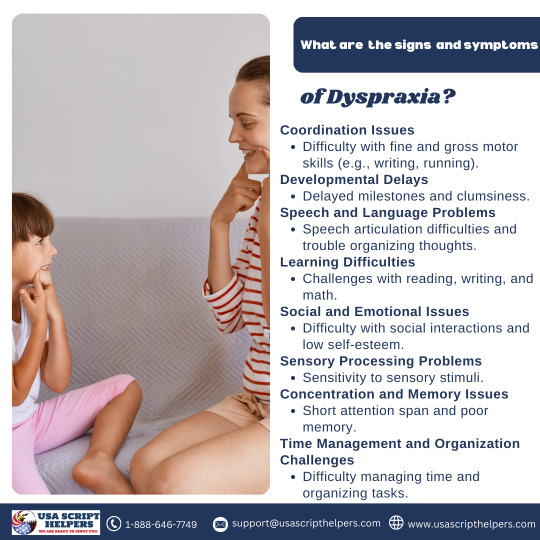
🔍 Struggling with coordination, speech, or social interactions? These could be signs of Dyspraxia. Learn more about the symptoms and how to support those affected. #DyspraxiaAwareness #CoordinationIssues #SpeechDifficulties #SensoryProcessing #LearningDisabilities #usascripthelpers
#DyspraxiaAwareness#CoordinationIssues#SpeechDifficulties#SensoryProcessing#LearningDisabilities#usascripthelpers
0 notes
Link
A Speaker For Your Event – Passionate Charity CEO Jonathan Spencer CEO Jonathan Spencer: A Speaker for your event. A Voice for Change and Empowerment in Your Community Are you looking for a speaker for your event who can not only captivate your audience but also shed light on an incredibly important cause? Jonathan Spencer, the CEO of Zetetick Housing, is your answer. With a rich background in advocating for the rights and well-being of individuals with learning disabilities, autism, and additional needs, Jonathan brings a unique blend of passion, knowledge, and engaging storytelling to every event. Experience and Expertise: Jonathan Spencer is
0 notes
Text
Unleashing the Power of Play: The Numerous Benefits of Play-Based Pediatric Occupational Therapy
As pediatric occupational therapists, we know that children learn and develop through play. Play not only allows children to have fun, but it also helps them develop the skills they need for daily activities and function. This is why play-based Occupational Therapy (OT) has become a popular approach among therapists and parents alike as it offers a range of benefits for children. Let’s dive in deeper to explore some of the key benefits of play-based OT.
1. Improves Motor Skills
Play-based OT is a great way to improve a child's motor skills, including both gross and fine motor skills. By incorporating various activities into therapy sessions, such as building blocks, playing with playdough, catching and throwing a ball, or crawling under an obstacle course, children can improve their coordination, balance, and strength. This can help them with daily activities such as dressing, feeding, and writing.
2. Enhances Cognitive Skills
Play-based OT can also help children improve their cognitive skills such as problem-solving, planning, and organization. By engaging children in activities such as puzzles, memory games, and board games, children can improve their attention, memory, and processing skills. This can help them with school-related tasks like reading, writing, and math.
3. Boosts Self-Esteem
Play-based therapy can be an excellent way to boost a child's self-esteem and confidence. By providing a safe and supportive environment where they can be creative and explore different materials and activities, children can experience success and accomplishment. This can help them feel more confident in their abilities and encourage them to try new things.
4. Facilitates Socialization
Play-based therapy sessions also offer children the opportunity to socialize and interact with others, which is an essential aspect of their development. In group sessions, for example, children can learn how to share, take turns, and collaborate with others while engaging in different activities. This can also help children improve their communication skills and develop relationships with peers.
5. Customizable to Individual Needs
Play-based therapy is customizable to each child's unique needs. Play-based sessions can be tailored to target specific skills and areas of weakness, whether it's fine motor skills, sensory processing, or social skills. This way, each child can receive a personalized approach that meets their specific needs and goals.
#pediatricoccupationaltherapy#OTforchildren#sensoryprocessing#fineandgrossmotor#handwriting#feedingtherapy#autism#developmentaldelay#cognitiveimpairment#behavioraldisorders#ADHD#learningdisabilities#earlyintervention#sensoryintegration#visualperception#socialskills#motorplanning#selfregulation#assistivetechnology#schoolbasedOT#playtherapy#therapeuticinterventions#balanceandcoordination#mentalhealth#occupationaltherapygoals
1 note
·
View note
Text
We provide the flexibility to meet each student's individual learning needs in a comfortable and relaxed setting, where students progress as they demonstrate mastery. Students here get daily one-on-one instruction and support.


#specialneeds#specialeducation#saydyslexia#reading#parenting#ortongillingham#neurodiversity#neurodivergent#microschool#madebydyslexia#learningdisability#learningdisabilities#learning#education#dyspraxia#dyslexic#dyslexiasupport#dyslexiaisreal#dyslexiaeducation#dyslexiaawarenessmonth#dyslexiaawareness#dyslexiaadvocate#dyslexia.#privateschool#dysgraphia#dyscalculia#bocaraton#asd#adhd
0 notes
Text
Conquering Math Anxiety: Unlocking Academic Success

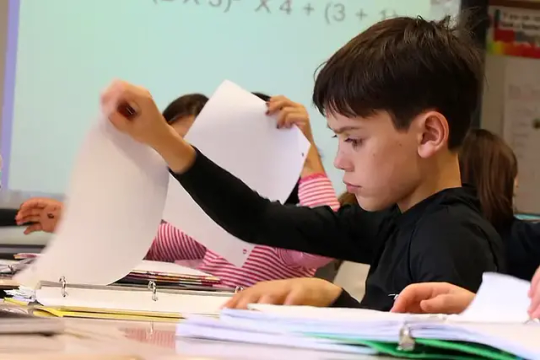
Young boy studying math in class. Photo by Woodley Wonder Works. Flickr.
Math Anxiety: Embracing Numbers with Confidence
Overcoming Fear of Numbers Many children worldwide experience math anxiety—an unsettling fear or stress linked to math tasks. This anxiety can be debilitating, discouraging young learners from confidently approaching math problems. The fear of making a mistake often stands as a barrier to effective math learning. Symptoms of Math Anxiety Math anxiety can manifest in various ways, including nervousness, dread, or even physical symptoms like sweaty palms or an accelerated heart rate when confronted with math-related tasks. These emotions can create mental blocks, making it challenging for students to grasp mathematical concepts and apply them effectively. Empowering Young Learners Addressing math anxiety necessitates a supportive and empathetic approach. Teachers and parents play a vital role in helping children overcome this hurdle. Breaking down complex problems into smaller, manageable steps and reinforcing effort rather than merely correct answers can gradually build math confidence, empowering young learners to embrace numbers with confidence.
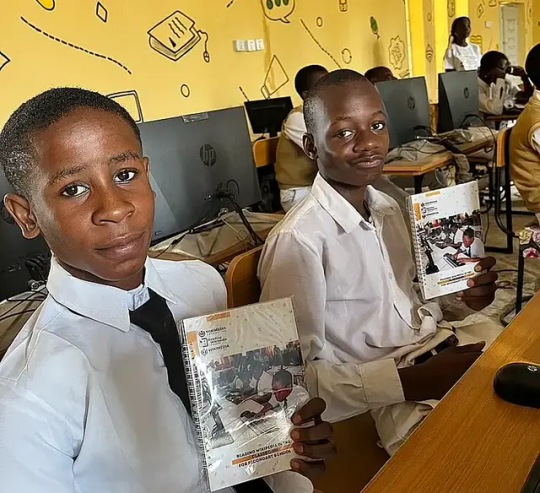
Reading Wikipedia in the Classroom for Secondary School Students. Photo by James Rhoda. Wikimedia.
Reading Comprehension: Beyond Words
Unlocking the Meaning Behind Text Reading goes beyond decoding words; it involves comprehending the deeper meaning behind them. Reading comprehension is a multifaceted skill, requiring the ability to analyze, infer, and synthesize information from text. Navigating Reading Challenges Children who struggle with reading comprehension may accurately decode words but often struggle to connect the dots between sentences and paragraphs. This challenge can hinder their performance across various subjects. Enhancing Reading Comprehension To address this challenge, educators and parents worldwide can employ strategies that focus on enhancing reading comprehension skills. This may include asking questions to stimulate critical thinking, promoting discussions about the material, and exposing children to diverse genres and topics to broaden their understanding of the text.
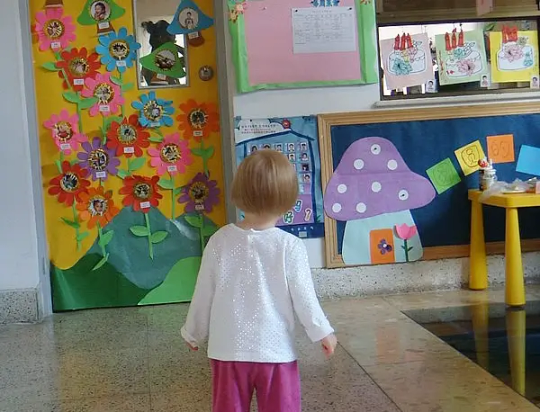
What are they doing in there... Photo by Scott & Elaine van der Chijs. Flickr.
Nurturing a Love for Learning: Sustaining Interest
Fostering Curiosity and Engagement Maintaining a child's interest in subjects like math and reading is crucial. When young learners lose interest, their enthusiasm and effort may wane, hampering their academic progress. Sparking Passion for Learning Educators and parents worldwide can ignite a passion for learning by introducing engaging and relevant content. Math and reading need not be perceived as dry or abstract subjects; instead, they can serve as tools for exploring the world. Real-world examples, hands-on activities, and literature that resonates with children's interests can make a significant difference in fostering a love for learning.

Young girl showing the mental struggles that come with dyslexia. Photo by Kristine Lewis. Flickr.
Facing Unique Learning Challenges
Learning Disabilities: Overcoming Obstacles Specific learning disabilities like dyslexia or dyscalculia can make it extremely challenging for children to excel in reading and math. These disabilities affect how children process information, making it difficult for them to acquire and apply essential skills. Early Identification and Support Recognizing the signs of learning disabilities is crucial for early intervention. Teachers and parents globally should be attentive to indicators such as difficulty in reading fluently, problems with number concepts, or persistent struggles despite adequate instruction. Once identified, specialized support and strategies can be implemented to help children with learning disabilities thrive academically.

Oceanway Middle School on Earth Day with a new outdoor classroom. Photo by JAXPORT. Flickr.
Bridging the Opportunity Gap: Equal Access to Education
Limited Resources: Equalizing Opportunities Socioeconomic disparities can lead to unequal access to quality educational resources and tutoring, depriving disadvantaged children worldwide of essential support. Ensuring Equity in Education Addressing this issue requires a collaborative effort from communities, schools, and policymakers across the globe. Initiatives to bridge the opportunity gap, such as providing free or low-cost educational resources, offering after-school programs, and ensuring equitable access to quality schools, can make a substantial impact. By leveling the playing field, we can help all children reach their academic potential, regardless of their socioeconomic background.

Academic Achievement Award. Photo by Hugo y Charli. Flickr.
Building Blocks for Success: Academic Achievement
Math and Reading Proficiency: A Path to Success Proficiency in math and reading serves as the cornerstone of a child's educational journey, regardless of geographical location. These skills are not confined to specific subjects but serve as essential tools for understanding and excelling in various disciplines worldwide. Unlocking a World of Opportunities In today's interconnected world, strong math and reading skills open doors to a myriad of professions and career paths. From STEM (Science, Technology, Engineering, and Mathematics) fields to literature, social sciences, and more, a solid foundation in math and reading unlocks a world of opportunities for children worldwide.
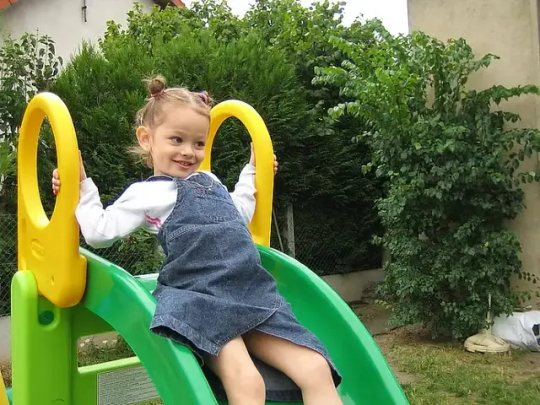
Soon Amandine got more and more confident. Photo by Sebastien Bertrand. Flickr.
Building Confidence and Self-esteem
Empowering Personal Growth Continual academic struggles can erode a child's self-confidence and self-esteem, impacting their overall well-being. Education is not just about acquiring knowledge; it's also about fostering a sense of self-worth and confidence in one's abilities. Fostering Resilience and Self-Belief Children worldwide need a supportive atmosphere where making mistakes and seeking help are encouraged. Promoting a growth mindset, where effort and perseverance are valued over innate abilities, can boost a child's self-confidence and motivation to improve. Recognizing that mistakes are opportunities for growth enables them to become more resilient learners.

Poverty and kindness of the child. Photo by Bibek Gaire. Wikimedia.
Breaking Cycles of Poverty: The Economic Impact
Education as a Catalyst for Change Insufficient proficiency in math and reading can have a lasting economic impact, contributing to cycles of poverty worldwide. Education is a powerful tool for breaking this cycle, but academic struggles can impede progress. Leveling the Playing Field As children from diverse backgrounds aim for academic success, it's essential to address these challenges. Early intervention, access to quality resources, and equitable opportunities can empower young learners globally to reach their full potential and break free from the constraints of poverty. Sources: THX News, National Report Card & National Center for Education Statistics. Read the full article
#Academicachievement#Buildingconfidence#Earlyintervention#EconomicImpact#Engaginglearning#Learningdisabilities#Mathanxiety#Mathreading#Qualityresources#Readingcomprehension#Supportiveenvironment
0 notes
Text
Day 385

1 note
·
View note
Text
Title: Rob McElhenney, Beloved Actor and Philanthropist, Opens Up About his Journey with Neurodevelopmental Disorders and Learning Disabilities

The Revelation: Rob McElhenney's Diagnosis and Journey of Self-Discovery In a brave and heartfelt revelation, beloved actor and television producer Rob McElhenney, best known for his role as Mac on the hit sitcom "It's Always Sunny in Philadelphia," has recently shared his deeply personal journey with a host of neurodevelopmental disorders and learning disabilities. At 46 years old, McElhenney is shedding light on his experiences, seeking to raise awareness and encourage acceptance within society. It was during his early adulthood that McElhenney first began to notice certain challenges in his life, ranging from difficulties with attention and executive functioning to struggles with reading and comprehension. After years of grappling with these hurdles, he sought professional help, leading to his diagnosis of neurodevelopmental disorders and learning disabilities. For McElhenney, the diagnosis was not a setback but rather a pivotal moment of self-discovery. Instead of viewing his condition as an obstacle, he chose to embrace it as an integral part of his identity. This newfound perspective allowed him to understand himself better and paved the way for a profound transformation in his life and career. 2: Raising Awareness: Rob McElhenney's Advocacy for Neurodiversity and Inclusion Driven by a desire to break down barriers and challenge societal norms, Rob McElhenney has become a vocal advocate for neurodiversity and inclusion. Read the full article
#Advocacy#Entertainmentindustry#Inclusion#Learningdisabilities#Neurodevelopmentaldisorders#Philanthropy#RobMcElhenney#Socialchange#Supportsystem
0 notes
Text
youtube
Non-verbal learning Disability (NVLD) is a neurological profile where individuals process information primarily through verbal channels, often missing non-verbal cues. Despite the misleading name, people with NVLD are not nonverbal and may not have traditional learning disabilities. Individuals with NVLD tend to be highly detail-oriented, bright, warm, and caring.
The speaker, Marcia Eckerd, emphasizes the importance of recognizing and celebrating neurodivergent individuals like Tim Wal's son.
#everythingneurodiversity#learningdisability#NVLD#neurodivergent#disability#disabilityawareness#bernstein#autismadvocate#autismstrong#specialneedsfamily#adhdawareness#adhdsupport#autismlove#traumarecovery#abilitynotdisability#specialneedsparents#autismcommunity#autismjourney#specialneedschildren#robertbernstein#robbernstein#bernsteinmethod#Youtube
4 notes
·
View notes
Text
youtube
Non-verbal learning Disability (NVLD) is a neurological profile where individuals process information primarily through verbal channels, often missing non-verbal cues. Despite the misleading name, people with NVLD are not nonverbal and may not have traditional learning disabilities. Individuals with NVLD tend to be highly detail-oriented, bright, warm, and caring.
The speaker, Marcia Eckerd, emphasizes the importance of recognizing and celebrating neurodivergent individuals like Tim Wal's son.
We hope you enjoyed this video. Make sure you click the "Like" button and share this video with your friends and others who might also be interested in learning about this video.
#everythingneurodiversity#learningdisability#NVLD#neurodivergent#disability#disabilityawareness#bernstein#autismadvocate#autismstrong#specialneedsfamily#adhdawareness#adhdsupport#autismlove#traumarecovery#abilitynotdisability#specialneedsparents#autismcommunity#autismjourney#specialneedschildren#robertbernstein#robbernstein#bernsteinmethod#Youtube
4 notes
·
View notes
Text

#educationtechnology#highereducation#onlineeducation#educateyourselves#education#learningdisability#blendedlearning#onlinelearning#distancelearning#exampreparation#examstudy#examination#aitechnology#technology#artificialintelligence
2 notes
·
View notes
Text
How to help a child with learning disability at Lyfsmile

Understanding Learning Disabilities in Children
Learning Disabilities in Children are neurological conditions that affect how they receive, process, and express information. These challenges can impact skills like reading (dyslexia), writing (dysgraphia), math (dyscalculia), or even attention and focus. Importantly, learning disabilities are not about low intelligence; they reflect a different way of learning and processing information.
Signs of Learning Disabilities
Parents and teachers might notice the following signs in children with learning disabilities:
Difficulty with reading or writing
Struggles with math
Trouble organizing tasks or ideas
Weak memory
Difficulty following instructions
Low self-esteem or frustration with schoolwork
Recognizing these signs early can help address the child’s learning needs effectively.
How Lyfsmile Supports Children with Learning Disabilities
At Lyfsmile, we believe every child has unique potential. Our team of experienced psychologists and therapists provides personalized support to help children overcome their challenges. Here's how we can help:
1. Detailed Assessment and Diagnosis
We start with a thorough assessment to understand the child’s specific difficulties. This includes evaluating cognitive, academic, and behavioral aspects to identify the type of learning disability and its impact.
2. Individualized Education Plans (IEPs)
After diagnosis, we create a personalized plan tailored to the child’s strengths and areas for improvement.
3. One-on-One Therapy Sessions
We offer targeted sessions to build skills like reading, math, and writing using evidence-based methods such as:
Cognitive Behavioral Therapy (CBT) to manage frustration and boost confidence
Occupational Therapy to improve motor skills and writing
Speech Therapy to address language and communication challenges
4. Parental Guidance and Workshops
Parents play a vital role in their child’s learning journey. We organize workshops and provide guidance to help parents:
Use effective teaching strategies at home
Create a supportive and stress-free environment
Understand the value of positive reinforcement
5. School Collaboration
We coordinate with schools to ensure children get the accommodations they need, like extra time for exams, modified teaching methods, or assistive technology.
Meet Our Expert Team at Lyfsmile
Our dedicated team includes:
Mrs. Ritika Dhall: Specializes in helping children overcome reading and writing challenges with innovative techniques.
Mrs. Tanya Sachdev: Expert in managing emotional and behavioral aspects, focusing on building self-confidence.
Ms. Gunjan Bhatia: Renowned for her work with ADHD and Autism Spectrum Disorders, offering tailored interventions.
Mrs. Medhavi Bhalla: Uses creative methods to improve memory and organizational skills.
Dr. Shraboni Nandi: Provides advanced solutions for severe learning challenges with her clinical psychology expertise.
Mr. Arindam Sen: Focuses on educational psychology, helping children adopt effective learning strategies.
Ms. Urvashi Rajput: Emphasizes holistic development by addressing both academic and emotional needs.
Dr. R.K. Sharma, MBBS: Offers medical insights into neurological and physiological factors affecting learning.
Why Choose Lyfsmile?
Holistic Approach: We address academic and emotional challenges.
Experienced Team: Our psychologists and therapists are highly skilled.
Personalized Plans: Each child gets a unique intervention plan.
Family Involvement: We work closely with families to build a strong support system.
Success Stories
At Lyfsmile, we have many inspiring stories of children overcoming their challenges. One example is Aryan, who struggled with dyslexia. With personalized support, Aryan not only improved his reading but also regained his confidence.
Final Thoughts
Children with learning disabilities need understanding, patience, and specialized support to thrive. At Lyfsmile, we turn challenges into opportunities for growth. If your child is facing learning challenges, contact us to take the first step in unlocking their full potential.
Contact Lyfsmile
Visit our centers in Dwarka and Gurgaon or call us at 📞 +91-9804791047. Together, we can make a difference!
#LearningDisabilities#ChildDevelopment#LearningDisabilitiesInChildren#SpecialEducation#ChildPsychology#SupportForKids#InclusiveEducation#ChildCounseling
0 notes
Text
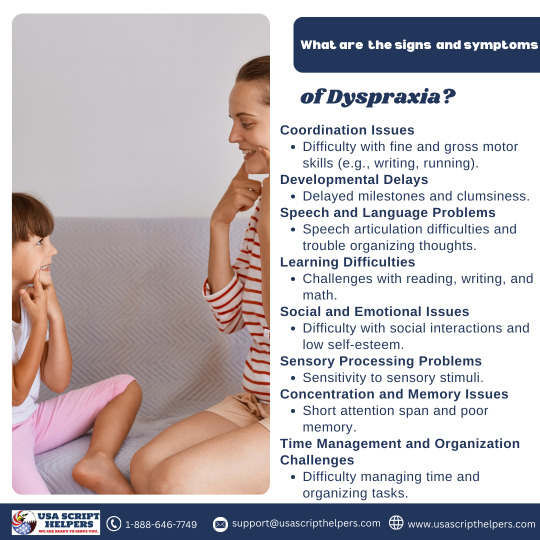
🔍 Struggling with coordination, speech, or social interactions? These could be signs of Dyspraxia. Learn more about the symptoms and how to support those affected.
#CoordinationIssues#DyspraxiaAwareness#SpeechDifficulties#SensoryProcessing#LearningDisabilities#usascripthelpers
0 notes